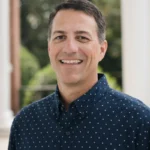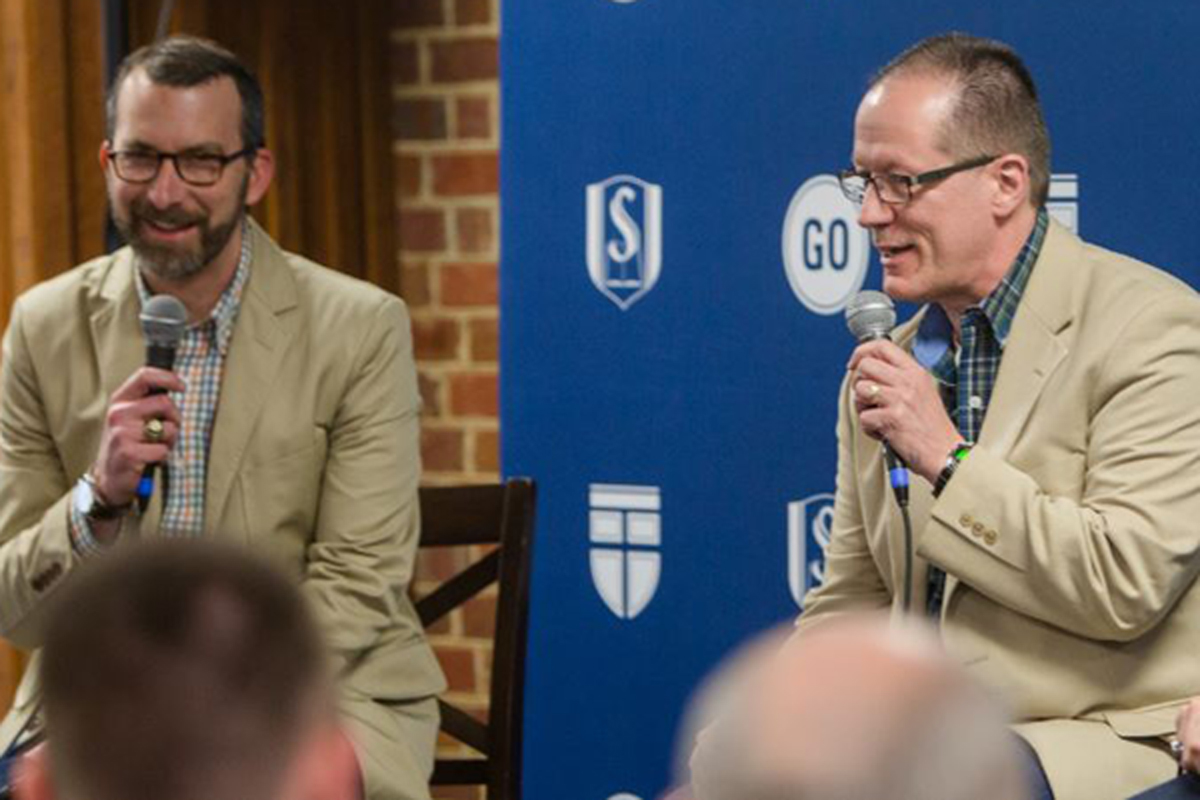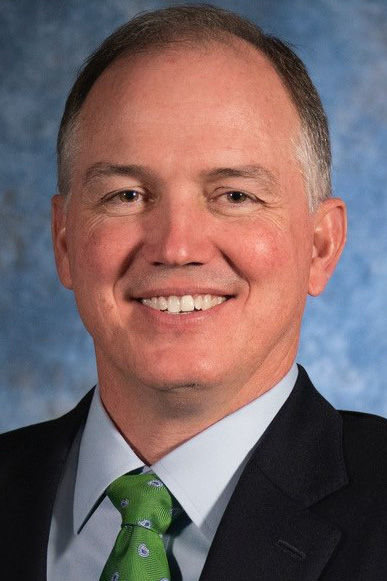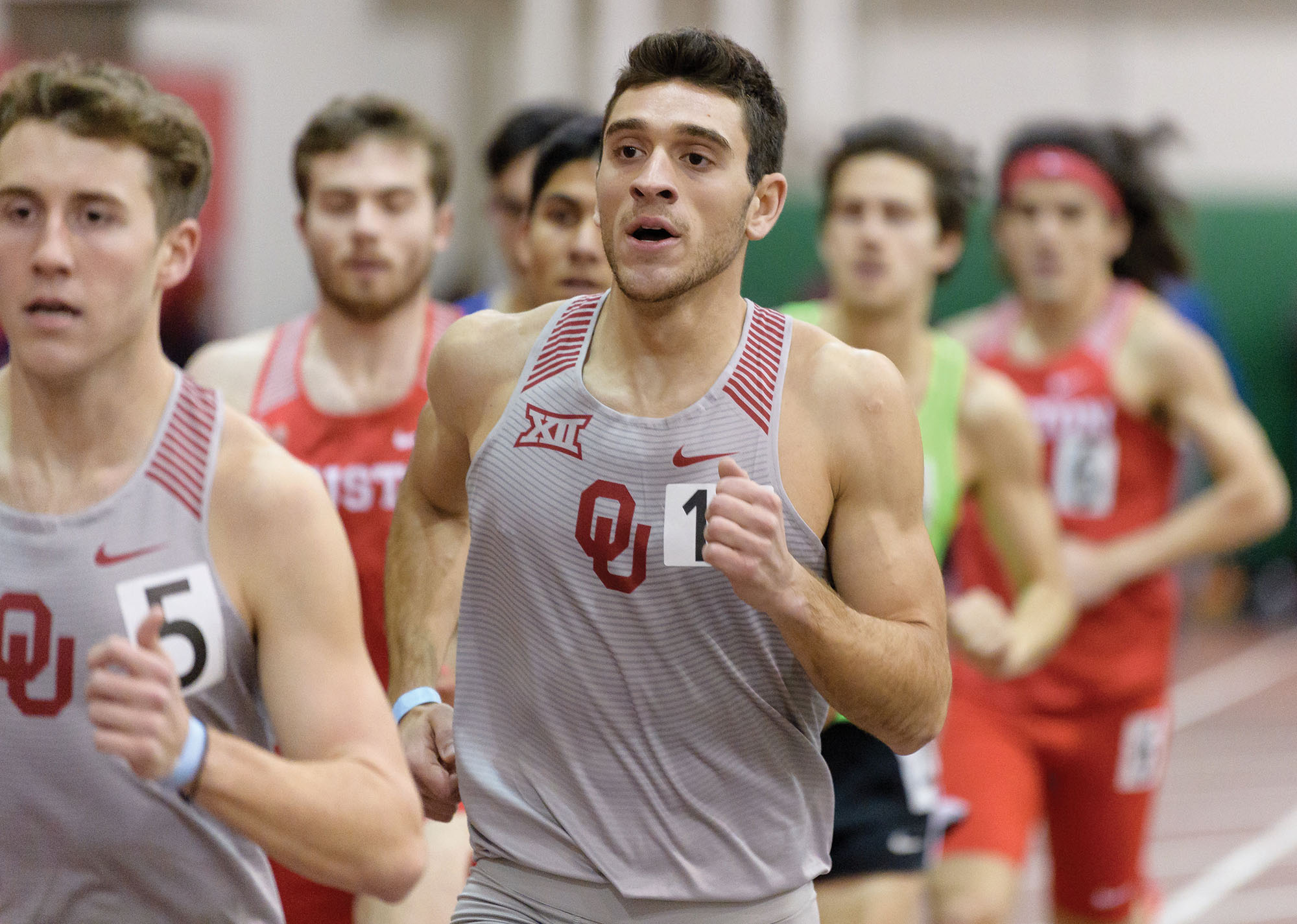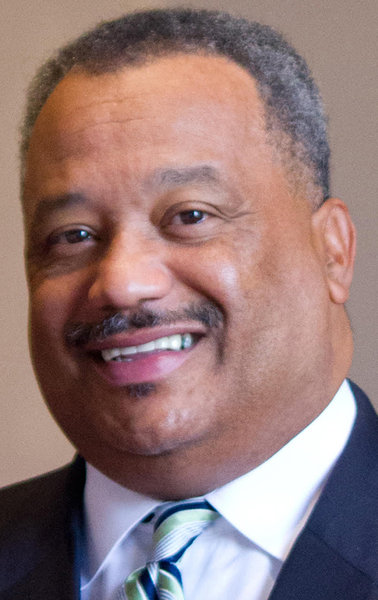 [1]
[1]ANTARCTICA – For the small number of believers at McMurdo Station in Antarctica, the transition from one military chaplain to another can bring with it a degree of trepidation and uncertainty. However, when the transition included two Southeastern Baptist Theological Seminary alumni, things looked different.
Caleb Clark, deputy wing chaplain of the 172d Airlift Wing, U.S. Air National Guard, assured his small group of chapel attendees that their new chaplain would care for them well as a man of character with a passion for the Gospel. In fact, Clark knew this from personal experience. He and Carlos Soca had met 20 years prior when they both arrived at Southeastern to pursue theological education.
Looking back on Clark’s and Soca’s time in Antarctica, God’s hand is evident in their reunion and subsequent ministry in a place that few people will ever reach.
“There are three chaplains that are sent,” Soca explained. “There’s one that’s sent in October who’s an Air National Guard chaplain. Then there’s another one sent to replace that one around late November, early December.”
Soca, as the third chaplain, would arrive in early January of last year for Antarctica’s final summer months. He was chosen by his command to go on this once-in-a-lifetime assignment, representing the U.S. Navy.
For Clark, however, the selection process was a bit more rigorous.
“It was certainly something I had desired to do very early on in my military journey,” Clark acknowledged. “To be competitive in the application, I had to have several boxes checked.” These included proven capability in challenging deployment locations, experience in domestic relief operations, familiarity with search and recovery efforts, and more.
“I was passed over twice before in the process and considered it a tremendous blessing to serve there,” he said. “I did hours of research and historical readings about the continent and our mission. Despite that, it couldn’t truly prepare me for the reality of living and working there among the McMurdo Station base population.”
The population the men served consisted primarily of civilians and scientists, averaging around 900 people, with the military serving only in a logistical capacity.
Because most people leave the base after Antarctica’s summer, each stationed chaplain has a challengingly short timeframe in which to form relationships, adapt to the environment and provide ministry for those under their care.
However, Clark and Soca determined a solution to this problem.
“Because we knew each other, and I believe because we both came from Southeastern, our minds were very missional — intentionally missional,” said Soca. “And we proposed that we were going to pass the baton to each other.”
The beginning of a friendship
That summer, during their training for Antarctica, the two friends reunited for the first time since they graduated from Southeastern all those years ago.
“Caleb and I were living near each other in seminary housing, and we were going to the same church: Old Mount Vernon,” Soca said. “That’s where he and I met.”
Not only did they go to the same church, but that first semester they both worked the same job at UPS.
“We would commute every day,” Soca recalled. “At around 5:30 we would head to UPS and work until midnight.”
During their time at Southeastern, the two pursued different degrees and thus never found themselves in the same class. But in God’s sovereign plan, the seeds of their friendship were already planted and ready to bear fruit many years down the road.
Soca graduated with a Master of Divinity in pastoral ministry in 2006. He would go on to serve with Open Door Church and help establish its Hispanic ministry. Then in 2013, he would lead a church plant back in his home state of New Jersey where he would pastor for seven years. During that time, he began a second degree at Southeastern and in 2018 was commissioned as a U.S. Navy Reserve chaplain. Two years later he transitioned from serving as a reserve chaplain into full-time active duty.
Meanwhile, Clark had been serving with the U.S. Air National Guard since 2011. Following his own graduation from Southeastern in 2007 with a Master of Arts in biblical counseling, he pastored in Mississippi for the next 12 years and then exclusively with the military from 2019 forward. Chaplaincy wasn’t what he originally had in mind when considering ministry, but God began to reveal to Clark the ways He had gifted and prepared him for such work.
Throughout all of this, Clark and Soca kept in contact through social media, staying somewhat aware of what was going on in each other’s lives. But there was nothing that led them to suspect the ministry opportunity they would soon be presented with.
On mission together
Clark landed in Antarctica only months after his reunion with Soca during the summer training of 2023.
His plane touched down on the runway of ice, and he was greeted by a place so very quiet and bright — not to mention, cold. It would be his home for the near future.
“When I showed up in late November, the science mission was already at full speed. I was replacing a chaplain and had less than two and a half months to establish myself, learn, adapt and then prepare for Chaplain Soca’s arrival and ministry,” Clark said.
It wasn’t easy. Separated from the rest of the world, Antarctica’s culture is severely secular, with little Christian influence and hard spiritual soil.
“Of the 900 people on the station at any given time, only a small percentage identify as Christian,” Clark said. “Finding any Christian fellowship was a true gem, but like gems of value, they were rare. In a most unique way in my life, I truly longed for and needed Sunday worship to feel the belonging from the body of Christ.”
He began eagerly building relationships and investing in the people that he met. The numbers in the little white chapel grew, and he saw people’s perceptions of Christians change.
“I had so many interactions with people that needed grace and mercy, but in past interactions with previous chaplains or pastors, they had felt only shame and condemnation,” Clark explained. He had many opportunities to demonstrate the love of Jesus and the truth of the Gospel. “It was a source of pride to hear, ‘You aren’t what we expected.’”
As the year drew to a close and Antarctica’s final summer months approached, Clark began preparing Soca for all he would need to know when he arrived. He shared with him the relationships he had been pouring into and advised him to bring gifts so he could connect with people more easily.
“It was good to know that what I had tried to accomplish in my teaching, preaching and pastoral style would be continued with Carlos,” Clark said.
In their ministry, they shared the same vision — the same love for Jesus Christ and His Gospel.
In Soca’s words, “Caleb and I were more focused on the idea that this is missional. This is about the Gospel.”
Exchanging the baton
When Soca arrived with the Navy, the two friends had only a brief moment to reconnect. The baton was passed, and the race continued.
“I brought fruit from New Zealand, because they don’t get fruit for a long time over there,” Soca said, “and that allowed me to make friends immediately with strangers. I received the nickname ‘the fruitful chaplain’ from a civilian.”
He also continued pouring into the small congregation that gathered at the chapel on base. On average, more than 20 congregants attended regularly, a number that more than tripled the average of the previous summer.
In addition to the congregation, there were several relationships that Clark passed on to Soca, people whom Soca began investing in.
“By God’s grace, we shared the Gospel with many people,” Soca said. “We also provided a place for the few Christians to have a refuge. God did that. We saw the Lord working in all of that. The Christians that were there — we loved on them, and they loved on us back. And the Lord used us during that time to minister to them.”
Like Clark, Soca also saw people’s perceptions change as he spent a significant amount of time serving alongside the civilians on base.
“I’ve never been a barista before, but there’s a coffee house there, and they needed volunteers,” he recalled. “So I went to the class, and I would take shifts making coffee for people. And they would come there and would say, ‘You’re the chaplain!’”
“I would wear my chaplain shirt on purpose,” he said, “so they would see it and they would know, ‘The chaplain’s making us coffee. He cares about us; he likes us.’ Those are the kinds of things we wanted. Our goal was to leave a good taste in people’s mouths about who a chaplain is and what a Christian is.”
To the ends of the earth
All too soon, Soca’s time in Antarctica came to a close. The sun was finally starting to leave the sky in preparation for the oncoming winter. The temperatures dropped even further into the negatives. And the population began to migrate back home.
“Caleb’s time there and my time there were tremendous weeks of Gospel ministry,” Soca said. “I saw the Lord answer prayer like I had never seen before.
“In the midst of a very spiritually adverse place, we two Christians, who went to Southeastern together, whom God had brought back together after so many years, were there working at the ends of the earth.”


